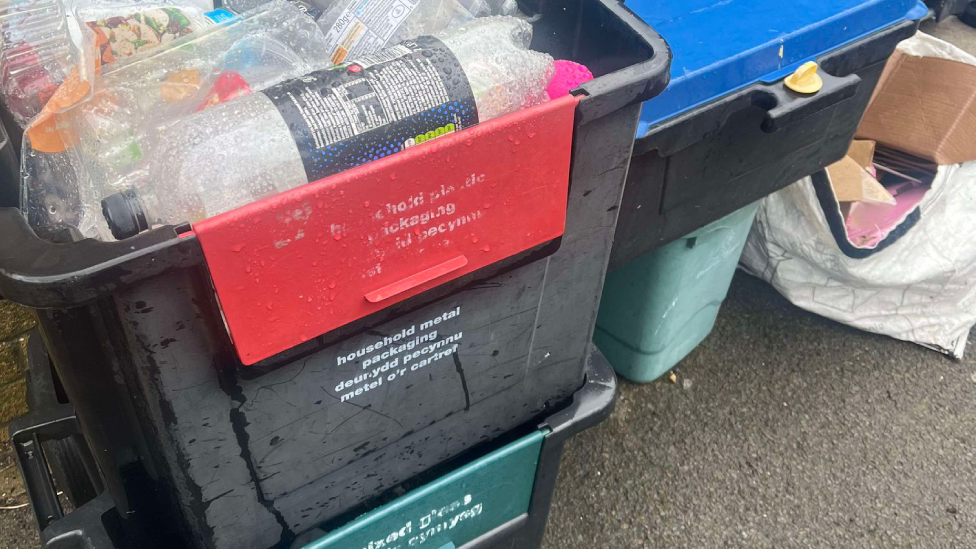Influencers fight fly-tipping as problem worsens

Heledd Roberts is one of the Welsh influencers encouraging people to dispose of their waste responsibly
- Published
Social media influencers have been brought in to tackle the problem of fly-tipping in Wales, which is at its highest for 15 years.
Latest figures show 42,171 incidents dealt with by councils and Natural Resources Wales (NRW) in 2023-24, up 6% on the year before. This figure does not include private land.
Fly-tipping Action Wales has focused on an influencer-led campaign to encourage people to dispose of their waste responsibly.
"It's a great way of being able to target a younger audience by using younger people to grab their attention," said Heledd Roberts, the daughter of a recycling centre owner and one of the group's content creators.
She added: "Wales is known for its natural beauty, its amazing landscape. But if fly-tipping carries on this way, it won't be Wales as we know it."
Heledd lives in Carmarthenshire where, despite an 18% drop on the year before, more than 3,000 fly-tipping incidents were recorded in 2023-2024.
"It's so destroying when you're driving home and you see all this rubbish on the side of the road."
Fly-tipping: What you wanted to know
- Published20 October 2017
Bitcoin miner sues over £600m 'lost in tip'
- Published3 December 2024
Friends fur-ever: The dog and the binmen
- Published30 August 2024
Fly-tipping Action Wales, which is sponsored by the Welsh government and partnered with environment body NRW, hopes it will help councils that are spending money on clearance costs instead of "vital services".
Team leader Neil Harrison said: "The topic of waste is not necessarily the most engaging.
"By tapping into the social media influencers we had the best reach of any campaign that we've ever run."
The group said the near-£2m cost of the clean-up by Welsh councils was "hitting the public purse".
"They'd rather be spending that money on vital services, which are stretched at the moment," said Mr Harrison.
"No-one wants to live in an area blighted by litter and fly-tipping."
There were more than 25,000 enforcement actions in the past year, leading to about 1,000 fines and 102 prosecutions.
NRW said this represented a 50% increase in successful prosecutions.
It comes as a number of councils in England are considering increasing the amount people can be fined for misdemeanours such as fly-tipping.
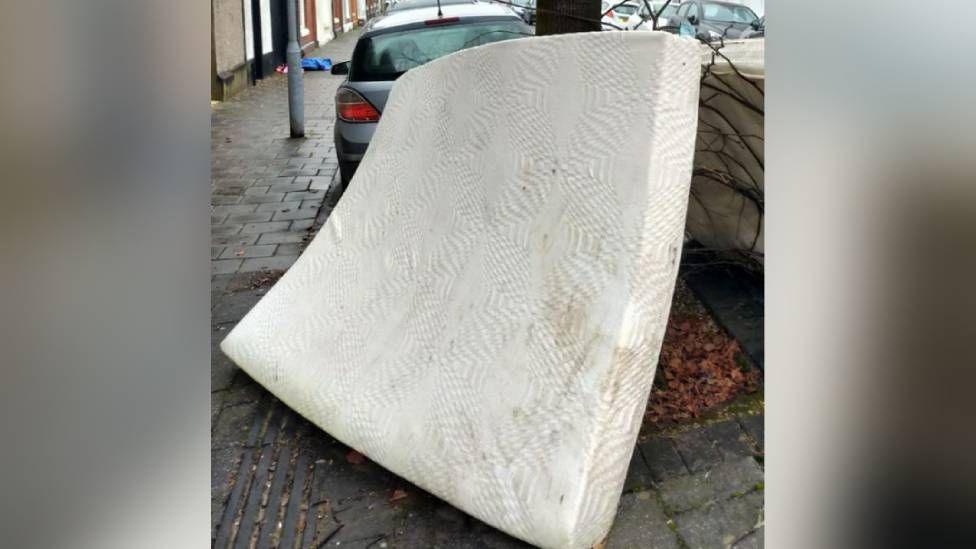
This mattress was dumped against a tree in Cardiff, where the council spent £300,426 clearing fly-tipped waste in 2023-24
Mr Harrison said the Welsh government "aren't currently looking at that", but he would like to see harsher penalties for fly-tippers.
Fiona McAllister, of the Keep Grangetown Tidy group in Cardiff, said the figures were depressing but "not really surprising".
She said the group of volunteers, who have been litter picking in the area for nearly 10 years, saw "an awful lot of fly-tipping".
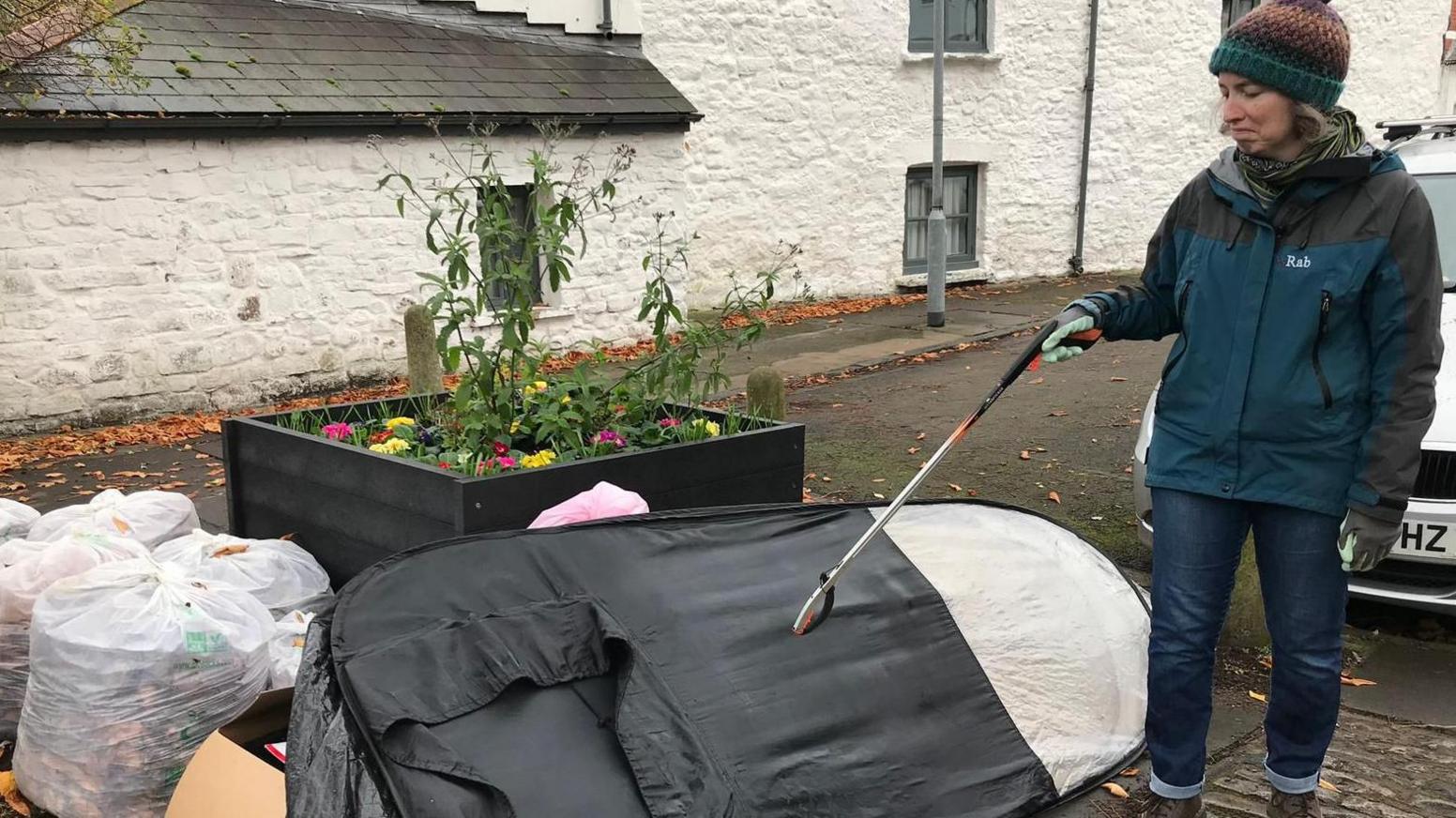
Keep Grangetown Tidy's volunteer litter-pickers like Sara Jones come across a wide selection of fly-tipped items - including this spray tan booth
Some of their worst finds have included a spray tan booth and "almost new" household goods which could have been donated or repurposed.
Ms McAllister said local authorities across the country could reduce their clean-up costs by prioritising education.
"It takes a while for something to bed in. The council doesn't have much money [but] there should be more enforcement for fly-tipping."
She suggested cameras at "hotspots" could be a good deterrent, while making recycling centres more "user friendly" for those without cars would also help.
"If they spent more on telling people how to dispose of waste properly, [they could] get more people on side."
Broken down by local authority, Newport had the most fly-tipping incidents – more than 8,100 and up 30% on the year before.
The council said it had undertaken "preventative actions" to try and tackle the problem, including more CCTV in hotspots and increasing patrols by council officers.
Yvonne Forsey, cabinet member for climate change and biodiversity, said the increase in incidents "has been matched by a corresponding increase in our action we have taken, which is in contrast to the picture across Wales as a whole".
She added: "It is a blight on the environment and our city and we will continue to take a zero-tolerance approach to dealing with it."
Additional reporting by Catriona Aitken
Related topics
- Published16 November 2023
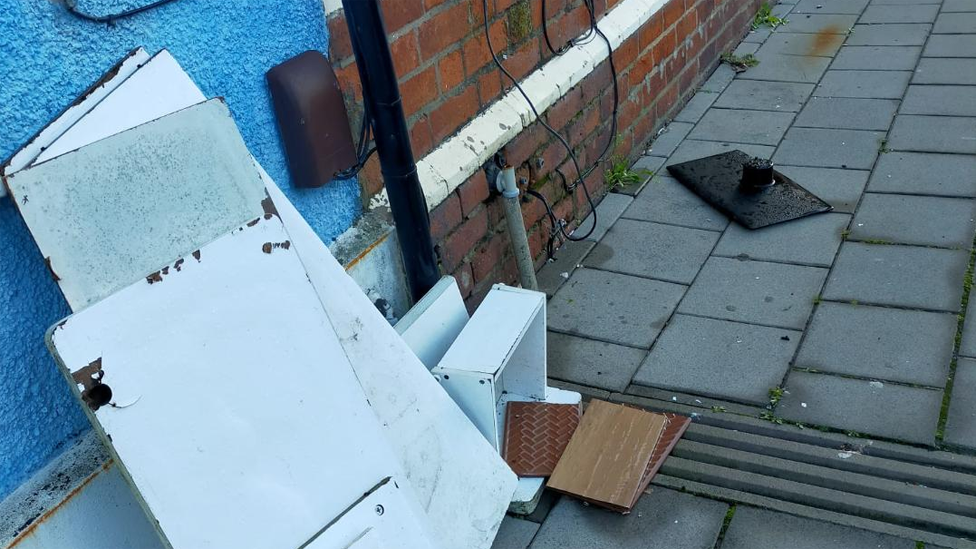
- Published29 May 2024
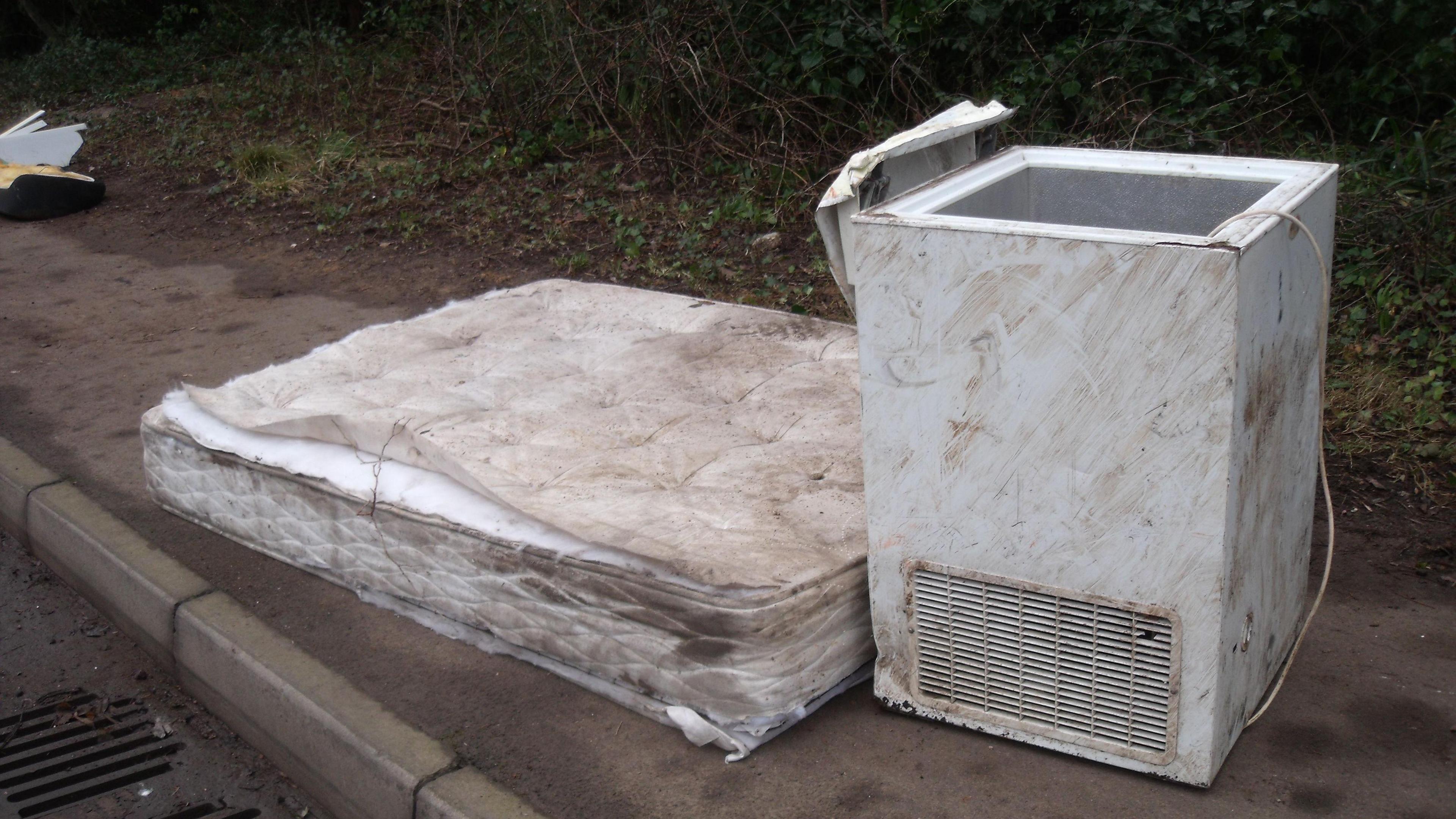
- Published26 August 2024
